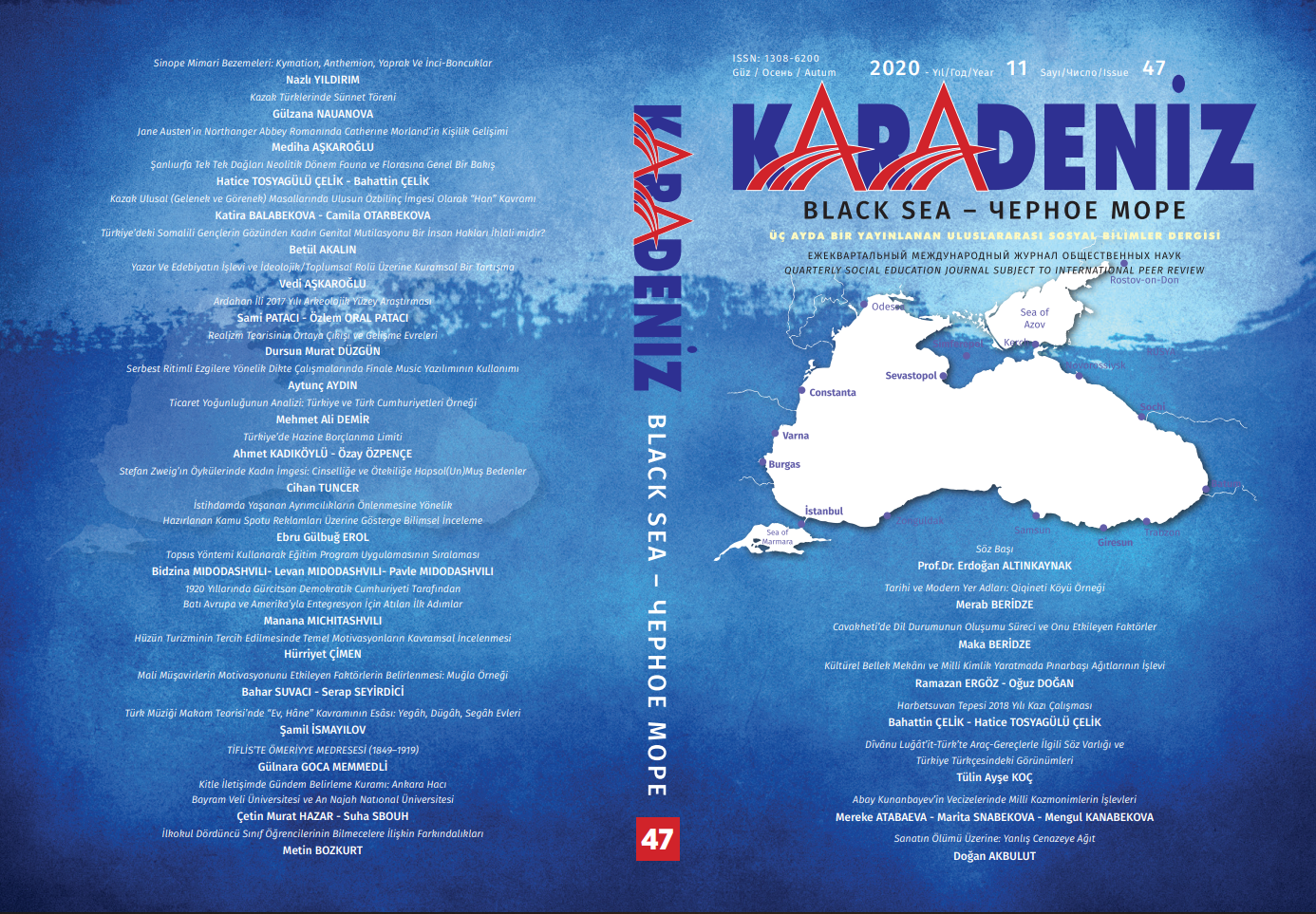HISTORICAL AND MODERN TOPONYMY: THE EXAMPLE OF QIQINETI VILLAGE
HISTORICAL AND MODERN TOPONYMY: THE EXAMPLE OF QIQINETI VILLAGE
Author(s): Merab BeridzeSubject(s): Language studies, Theoretical Linguistics, Sociolinguistics
Published by: Kültür Ajans Tanıtım ve Organizasyon
Keywords: Samtskhe-Javakheti; Toponym; Mohamedian (Muslim) Meskh; Naming; New Toponyms; XXth Century; Linguistic Situation; Meskkhetian Dialect;
Summary/Abstract: The toponymy of the village Qiqineti is discussed in this article. The village is situated in Adigheni municipality of Samtskhe-Javakheti region, South Georgia. This part of the country is one of the oldest regions of Georgia – Meskheti, which is distinguished by its oldest toponymy. The names of villages such as Chobareti, Muskhi, Tskordza, Toba and others are as old as about two thousand years. In most of Meskheti villages, the population dwells here continuously so their toponym gives a clear clue of their remote history and traditionality. But there are still many villages, whose population migrated and new population took their places due to hard times in history. This caused cessation of the natural development processes and a new stream of toponymy, based on unnatural but forced administrative processes, appeared. The village Qiqineti belongs to such kind of villages and its microtoponymy is very interesting and examplary for us today. In this work, macrotoponymy is analysed by means of historical-comparative method. The toponyms acknowledged in the sources, in some cases, have been altered so far and it is,teherefore, difficult to determine their real linguistic roots. As for the toponyms evidenced in the 20th century, they are derived mainly from the interviewers through direct and in-depth interviewing. Besides direct interviews to gather relevant data, we used the material gathered by the MA and PhD students in the related departments of Samtskhe-Javakheti State University. When discussing the literature sources we gave preference to Georgian sources and also Osmal (Ottoman Empire) period sources, which are published in Georgian.The material gathered from the interviewers and historical sources permits to conduct structural and semantic analysis, identify the forms produced through the mixture of the dialects which also reveal the new linguistic-dialectological situation characteristic for the village Qiqineti. Studying the toponymy of only one village enables us to carry out our research in detail, find out new linguistic layers, general characteristic features of the Georgian dialects and the special cases found out in the village. The results of the research showed out that the main cause of disappearing the microtoponyms is the forced displacement of the population through administrative interference. The existence of oronymy as the basic orienting point for distribution of the lands and territories is also the result of the administrative interference.
Journal: Karadeniz Uluslararası Bilimsel Dergi
- Issue Year: 2020
- Issue No: 47
- Page Range: 1-15
- Page Count: 15
- Language: English

